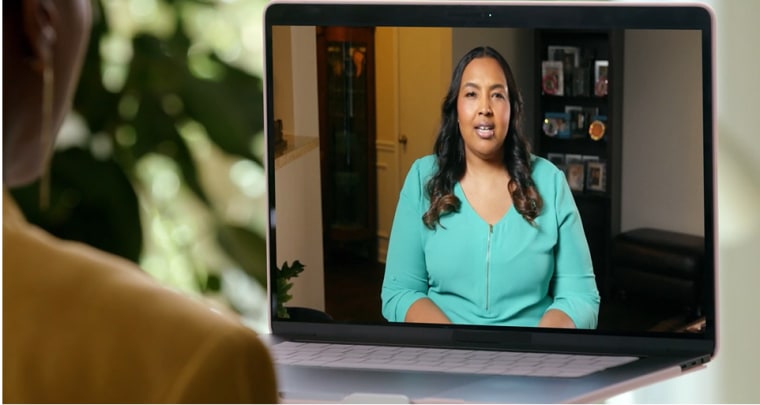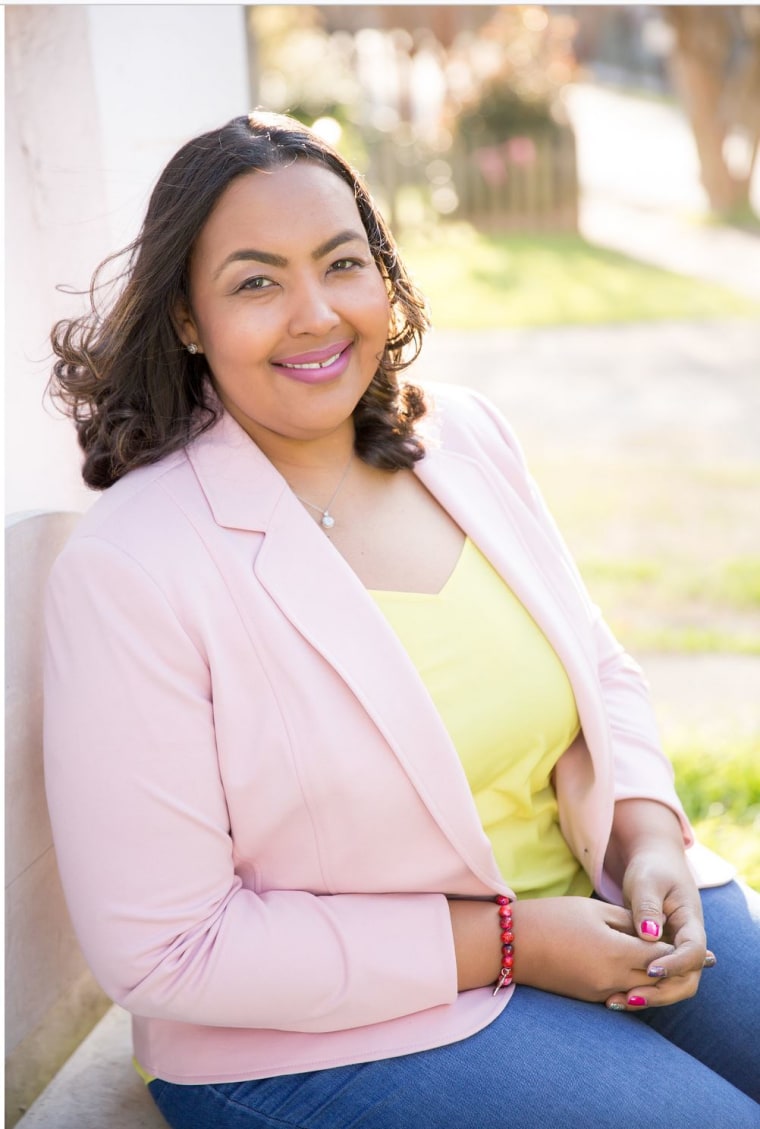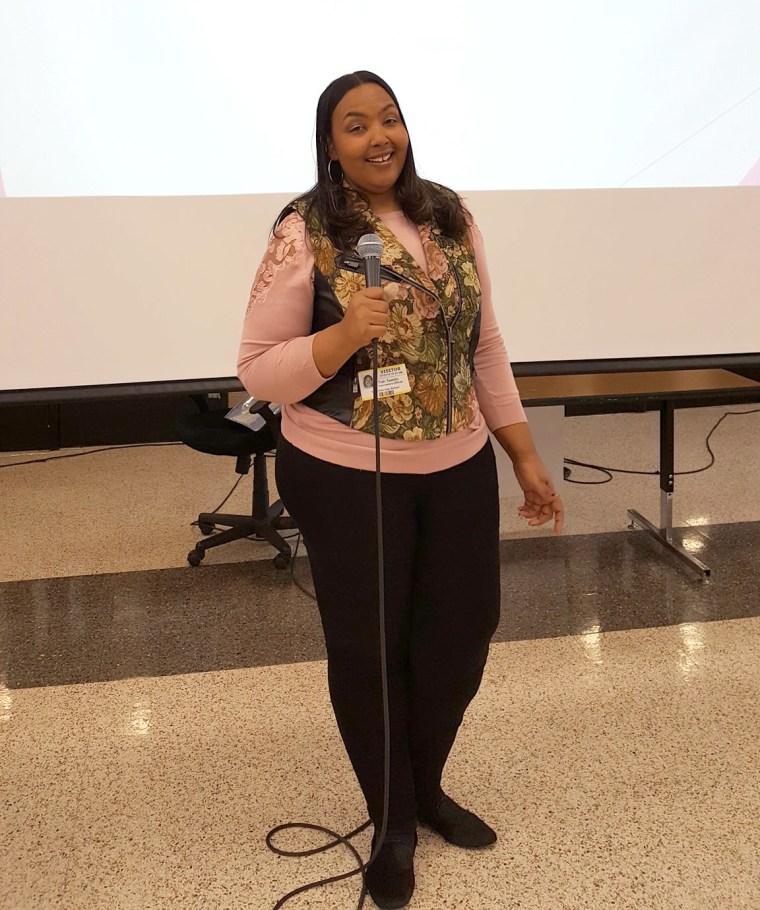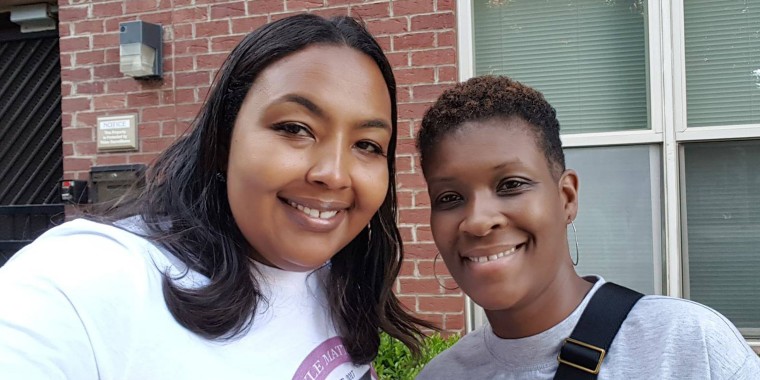After being diagnosed with triple negative breast cancer at 38, Tiah Tomlin searched for other women like her. She tried support groups, but she often was the youngest person or one of few Black women attending. That’s when she started thinking about what she could do.
“Many of us who live in Atlanta are not from here so we don’t have these huge support circles,” Tomlin, now 45 years old, told TODAY. “God just put it on my heart. 'You be the bridge. You be the solution to that problem, to that gap.’ And I started a sisterhood called ‘My Breast Years Ahead.’”
The group boasts nearly 600 women in the greater Atlanta area and gives Black women resources and support during cancer treatment. Tomlin also recently participated in the Uncovering TNBC campaign, an awareness effort from Merck, that features three women’s experiences with triple negative breast cancer.

“I just put it on my heart to start something because of the lack of support that I saw. Even with supportive services, the holes really were there,” she said. “I said, ‘I've got to be a part of the solution because this is not good. People are already fighting physically and emotionally and to have to also a deal with that mental challenge and do it feeling lonely — it’s not going to help us have better outcomes.’”
Self-exam reveals a lump
Since learning about self-breast examination in seventh grade, Tomlin performed them regularly. In 2015, she found a lump while showering.
“It took my breath away,” Tomlin said. “I immediately knew that it was breast cancer.”
She felt particularly stunned about it because she had examined her breasts two weeks earlier and hadn’t felt anything. So Tomlin called her OB-GYN, worried what she had was fast growing. After undergoing a mammogram, an ultrasound and a biopsy, she learned she had triple negative breast cancer, an aggressive form of cancer.
“(I remember) thinking, ‘Am I going to live? Am I going to survive this,’” she said. “You have these peaks and valleys through your journey.”
When Tomlin was growing up, an aunt by marriage was diagnosed with breast cancer and underwent a mastectomy. But no one discussed it. Tomlin felt isolated after her diagnosis and turned to support groups. But she didn’t always get what she needed.
“Being young, being single, being Black I had a lot of questions and I really wanted to understand triple negative breast cancer,” she said. “I was a 38-year-old Black woman that had questions about fertility, what are the differences of a cancer diagnosis for a Black woman versus a white woman, treatment, all of that. It was really tough emotionally.”

When she encountered young Black women at treatment, she often chatted with them.
“I would see Black women and young Black women in treatment but I didn’t see them at the support groups where I was hoping to see them,” Tomlin said. “I started to connect with them in the infusion center and we would sit beside each other and we asked questions and compared notes.”
That experience encouraged Tomlin to start My Breast Years Ahead. She knew the need for support and education was great. While white and Black women are diagnosed with breast cancer at a similar rate, Black women are more likely to die from it. According to the Centers for Disease Control and Prevention, breast cancer deaths are 41% higher for Black women compared to white women.
“Oftentimes we suffer in silence. We don’t talk to anyone. We don’t share our stories with anyone,” she said. “When you’re diagnosed, don’t isolate yourself because when you isolate yourself you’re not able to even learn if you’re getting the standard of care.”
I was a 38-year-old Black woman that had questions about fertility, what are the differences of a cancer diagnosis for a Black woman versus a white woman, treatment, all of that. It was really tough emotionally.
Tiah Tomlin
She’s met Black women who didn’t know that they could be enrolled in clinical trials for treatments, for example, or are not offered aggressive treatments. A 2021 study in JAMA Oncology revealed that Black women with triple negative breast cancer were more likely to die, in part, because they did not receive surgery and chemotherapy as often as other women. Tomlin found that talking and sharing information can be transformative for many.
“If (doctors are) not giving you what you need or they’re not going the extra mile or they’re not talking with you about genetic testing or they’re not giving you options — you don’t even know that you don’t have as many options (as other patients),” Tomlin explained. “This is why I tell women you've got to connect with someone and learn and understand. Just myself going through it, I didn’t know I had options.”
Continued advocacy
Tomlin’s cancer had returned in 2019. She had surgery to remove the cancerous lymph nodes and has been cancer free since. This time, she opted against radiation and chemotherapy and her doctors were surprised that the surgery-only approach worked so well.
“I’ve had numerous PET scans and nothing is there,” she said.

She also started a nonprofit, My Style Matters, which “focuses on cancer prevention education as well as disease education coupled with supportive services.” People with cancer can receive five weeks of fresh produce delivered to their home. What's more, they can attend educational programming about lifestyle changes that lower cancer risks and how to perform self exams for early cancer detection. Tomlin know all too well how early detection can make a huge impact on someone's life.
“I wasn’t of the age of getting (mammograms)," she said. "Breast cancer didn’t run in my family. So if I did not learn what I learned in the seventh grade, I would either not be here today or would have been diagnosed with a later stage."
Related:
